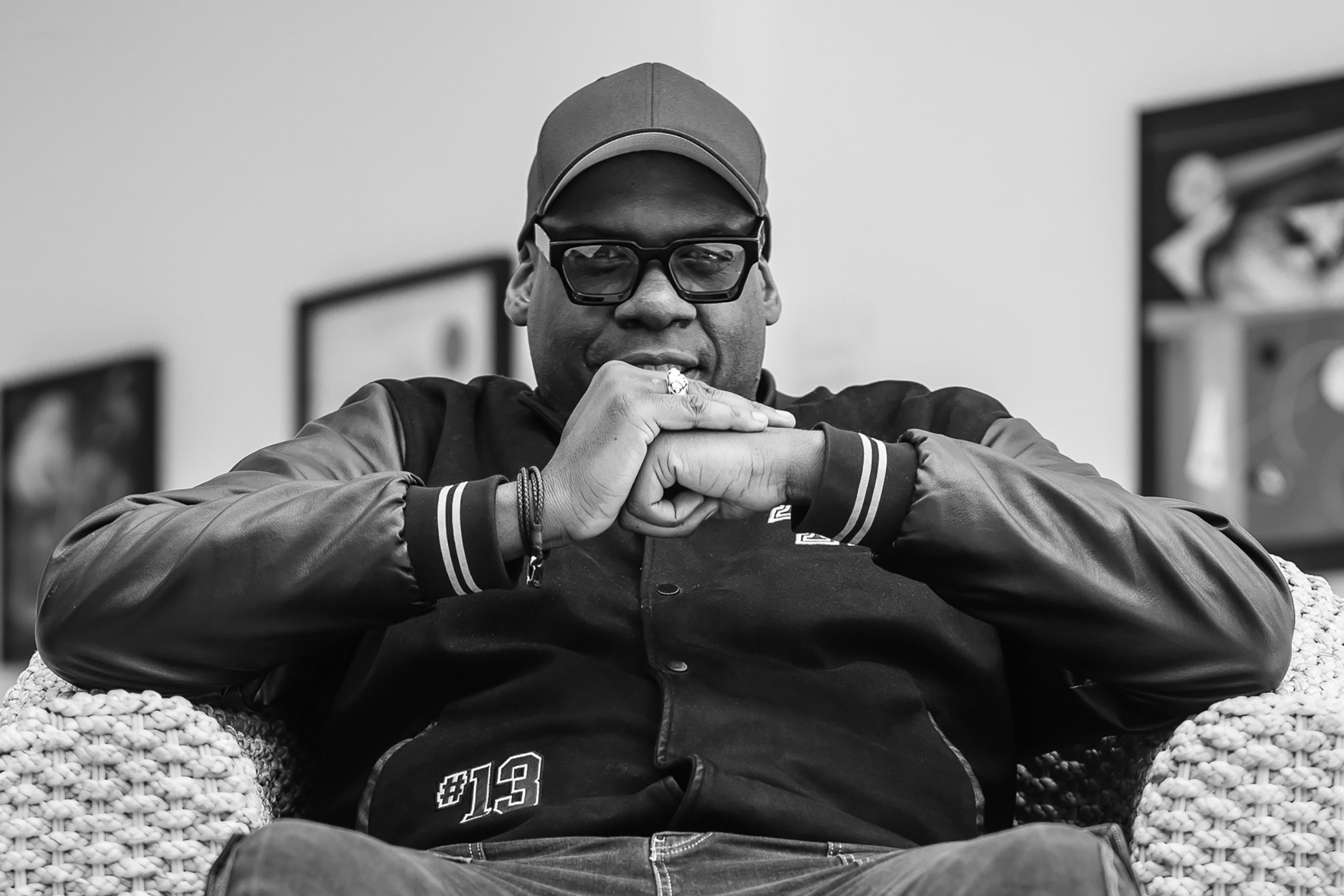 Features
Features
It's time for Jeremy Sylvester's UK dance music coronation
Working almost in secret across countless aliases, Jeremy Sylvester is responsible for some of dance music's greatest tracks — particularly in UK garage. Now with the release of a debut solo album under his own name, the 'Underground Hero' is ready to step into the limelight and collect his flowers as a legendary artist
“It’s amazing to me, the things I can do, the things that I’ve seen,” breathes a voice on Jeremy Sylvester’s 2002 track ‘The Things I Can Do’. These small, sampled meditations ring as loudly as a quote from the man, who is humble despite having, point blank, UK garage’s greatest back catalogue.
Club Asylum. G.O.D. Sly Paul. Champagne Bubbler. Miles Fontaine. Dubtronix. Groove Committee. These are just a fraction of the aliases that belong to a habitual studio obsessive who was given a devoted musical upbringing and a trusting record label, and used it to perfect UK garage’s sound as it thrived in the underground through clubs and pirate radio in the late ’90s, then again when it ascended to the mainstream with a new vision for pop music in early 2000s. He never regularly DJed until the middle of his career, so intent was his focus on making the beats that filled the clubs. “I had my Akai 2900 and 2950 sampler and MPC drum machine, and I just chop up a sound and manipulate it into a groove that fits my groove,” he says. “That’s been my thing.”
In the late ’90s and early 2000s, he did this to an obscenely prolific degree. Even official releases are hard to track and spotty on Discogs, without mention of the unknowable amount of bootlegs made by his own fair hand. The most telling example of his monstrous output is The Master Builder’s 1997 ‘Man Cannot Rise’ EP, which came with six remixes - Sylvester, under a slew of aliases, was responsible for four of them. If he was a sculptor, he could have made the Terracotta Army and still had time left over to shape gunfingers onto the clay soldiers.

Sitting at home, Sylvester has just come back from We Out Here festival as we speak - he wasn’t a fan of André 3000’s divisive improvised set, but was heavily into the d‘n’b offerings from the likes of Tim Reaper. His catalogue began as a string of jungle EPs in 1994, but his upbringing didn’t naturally lead him there.
Born in Birmingham in the mid-70s, Sylvester’s family includes 12 uncles and four aunties. “My family is from Grenada, and my dad was part of quite a successful disco band in the ’70s called the J.A.L.N. band [standing for Just Another Lonely Night]. We were brought up on soca and calypso music,” he says, adding that he was also exposed to what was playing when his father took him to his studio. “I wasn’t really brought up on reggae, but later on down the line, I steered towards the heavy dub side of it, which I think really influenced me if you listen to the old jungle stuff.”
Read this next: In Session: Jeremy Sylvester
When Sylvester was older, he had the luxury of his father’s studio space in Digbeth’s Custard Factory, a complex of 200 creative studio workshops regenerated from an old factory. Walking past each room, Sylvester could see artists expressing with paint, and clothes designers working with en-vogue materials. “We just wanted to be surrounded by loads of creatives, whatever they be,” he explains. “It was a good place to meet people. We’d bump into [hard house pioneer] Tony De Vit in the corridors and hear him upstairs when we wasn’t doing anything.”
Here, Sylvester would produce jungle as Dubtronix, having his first hit with producer GE Real, ‘Screwface’, thanks to early promotion from Grooverider. “The reason that track took off was because we gave the DAT tape to Grooverider, and he cut it on a dubplate,” he explains. “We gave it to him specifically and he had it for a year before we released it. He absolutely smashed it out the park.”
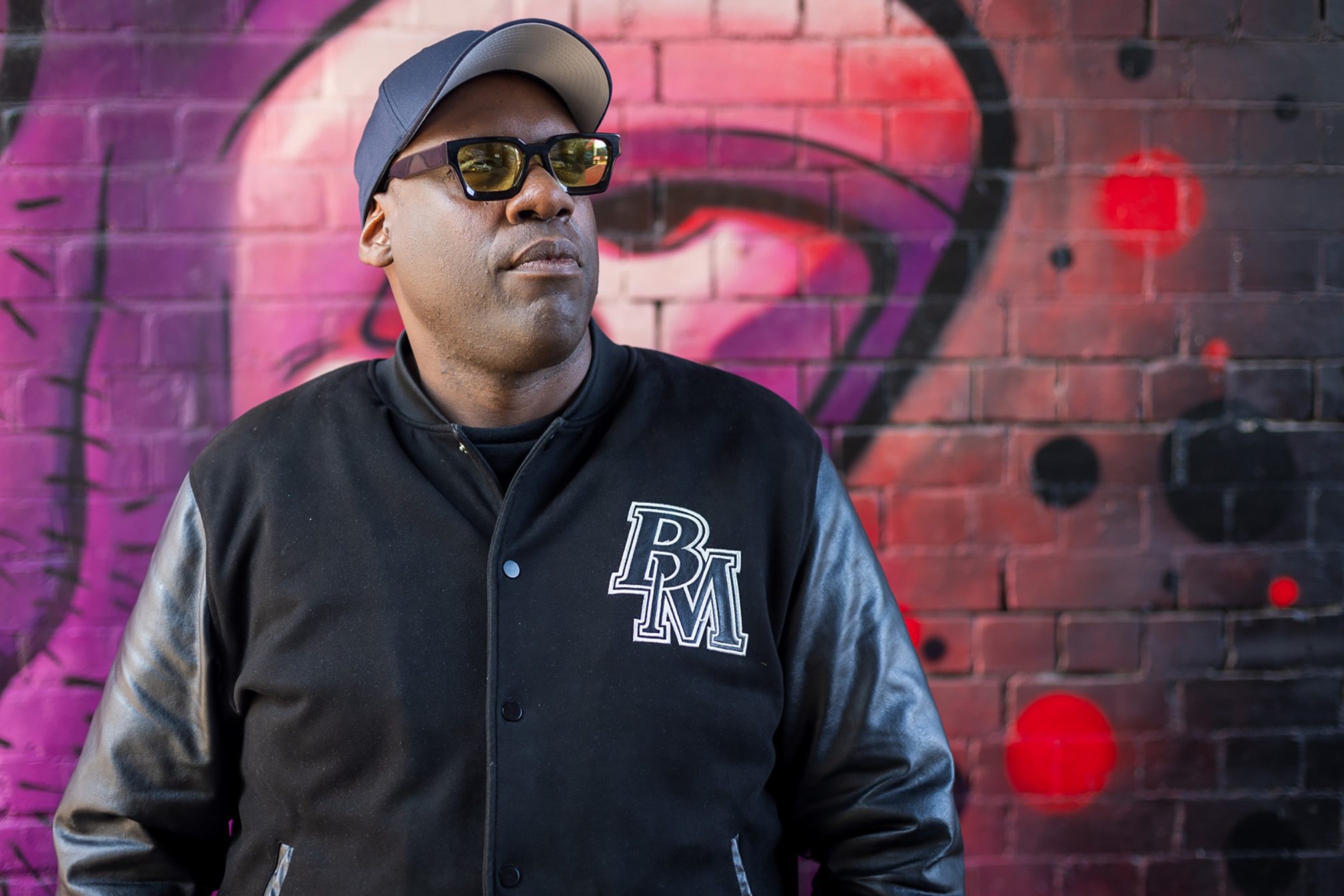
Sylvester became fascinated with the burgeoning garage sound being developed by Tuff Jam in the mid-90s, and his first foray into garage was as part of Bass-Funk-Tion, a trio with producers Adrian 'Spud' Hibbert and Danny 'Technici' Loughran. As much of a wellspring as the Custard Factory was, he was frustrated that he wasn’t hearing the garage music that seemed to come alive whenever he went to London. “In Birmingham, there wasn’t that many pirate radio stations, maybe one or two. But when I went to London, I used to get inspired by the pirate stations, the record shops and the culture where people were immersed in that sound.”
Sifting through Technici’s record collection, he discovered a label created by producer Grant Nelson and Kiss FM founder George Power - its name was Nice ‘N’ Ripe. Nelson had since left under contentious terms when Sylvester phoned them up, but he made the move to London around ’96 to work with the label. Becoming their in-house producer, Power encouraged Sylvester’s intense focus on his craft with little disruption, like a racehorse fitted with blinders. “I was in the studio on a daily basis. George allowed me to do what I do and keep making music, which was important for me to love what I’m doing.”
So began his rinse-out years. Sylvester was now the driving force of a label that flooded the market, taking what innovators like Tuff Jam had done with the American house roots and doing it his own way using sounds from jungle, adding pitched-up 808 basslines and a nastier bite.
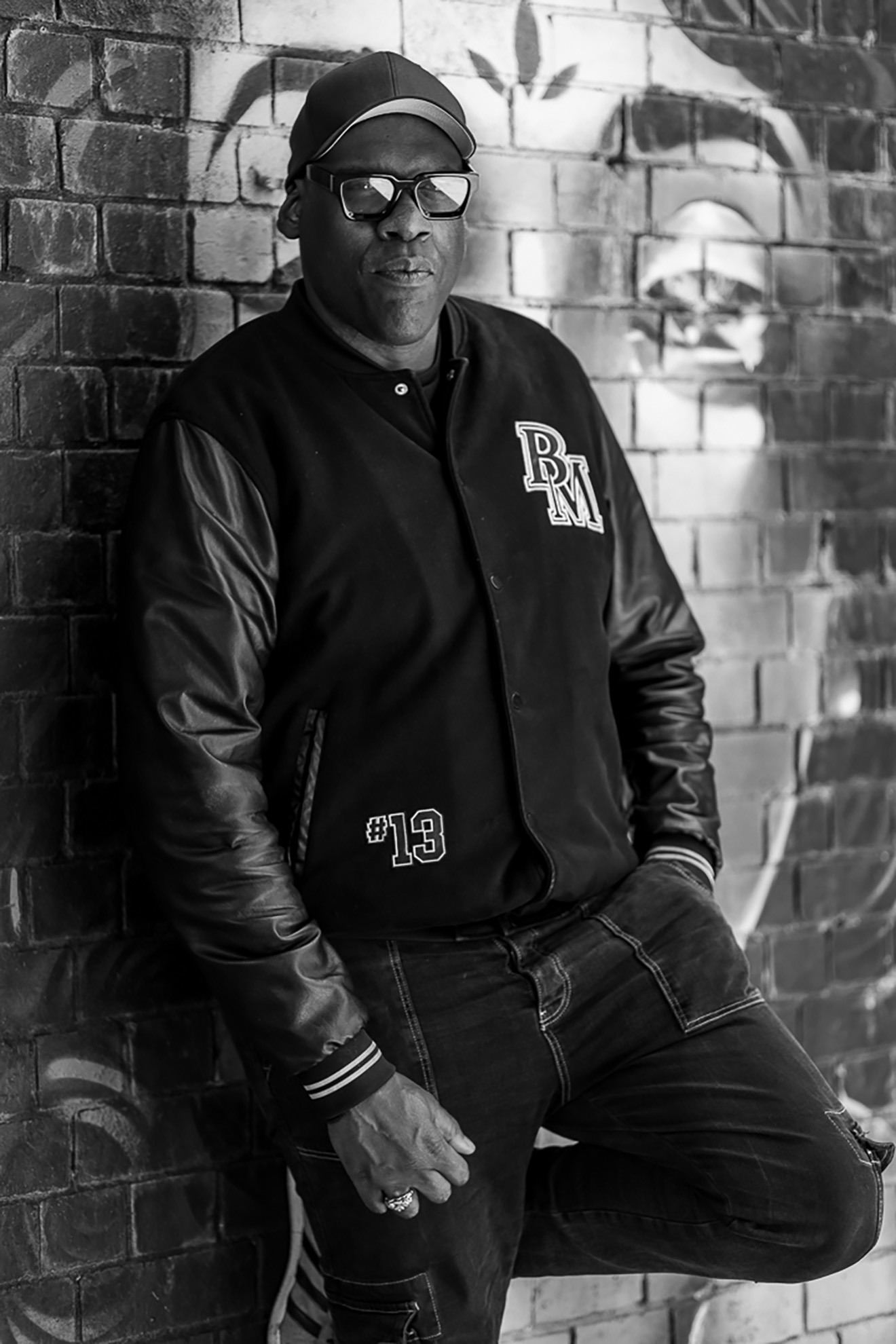
A classic soul fan, Jeremy Sylvester was now part of a new Motown-esque hit factory with Nice ‘N’ Ripe, churning out tracks on a daily basis and welcoming eager guests into the office (essentially Power’s front room) every week. “People like Matt ‘Jam’ Lamont, Karl ‘Tuff Enuff’ Brown, Steve Jackson from Kiss FM, a lot of the pirate radio stations in London and DJs from there. Every man and their dog used to come down and get the promo before anywhere else. We were just feeding them,” he says, giving out imaginary records with his hands.
Sylvester and Nice ‘N’ Ripe produced 63 official releases together between 1996 and 1999, amassing to over 250 beats. To avoid saturation of his name, he sectioned his work into a plethora of aliases, but listeners quickly cottoned onto the Sylvester sound. Placing a needle on the synth skip of Sly’s ‘Right n Wrong’, or the new jack swing-adjacent drums and gulping bass of Strickly Dubz’s ‘Realise’, Sylvester’s penchant for stitching contrasting samples and jagged rhythms that fall into place like the tumblers of a lock was there all the same.
Read this next: The 15 best speed garage records released in '97 and '98
Be it his early garage house alias Deep Cover, his disco and French house-leaning moniker or one of 50 or so more, Sylvester relished hiding behind different identities, and even used it as a way to undercut the import releases from New York producers like Masters At Work, Todd Terry and David Morales. “We wanted to make it look like it was coming from America. So we were coming up with Italian American names like Ricky Suarez just to make it look like it was recorded at The Hit Factory in New York, we even put New York numbers on there,” he shares, letting out a dastardly laugh.
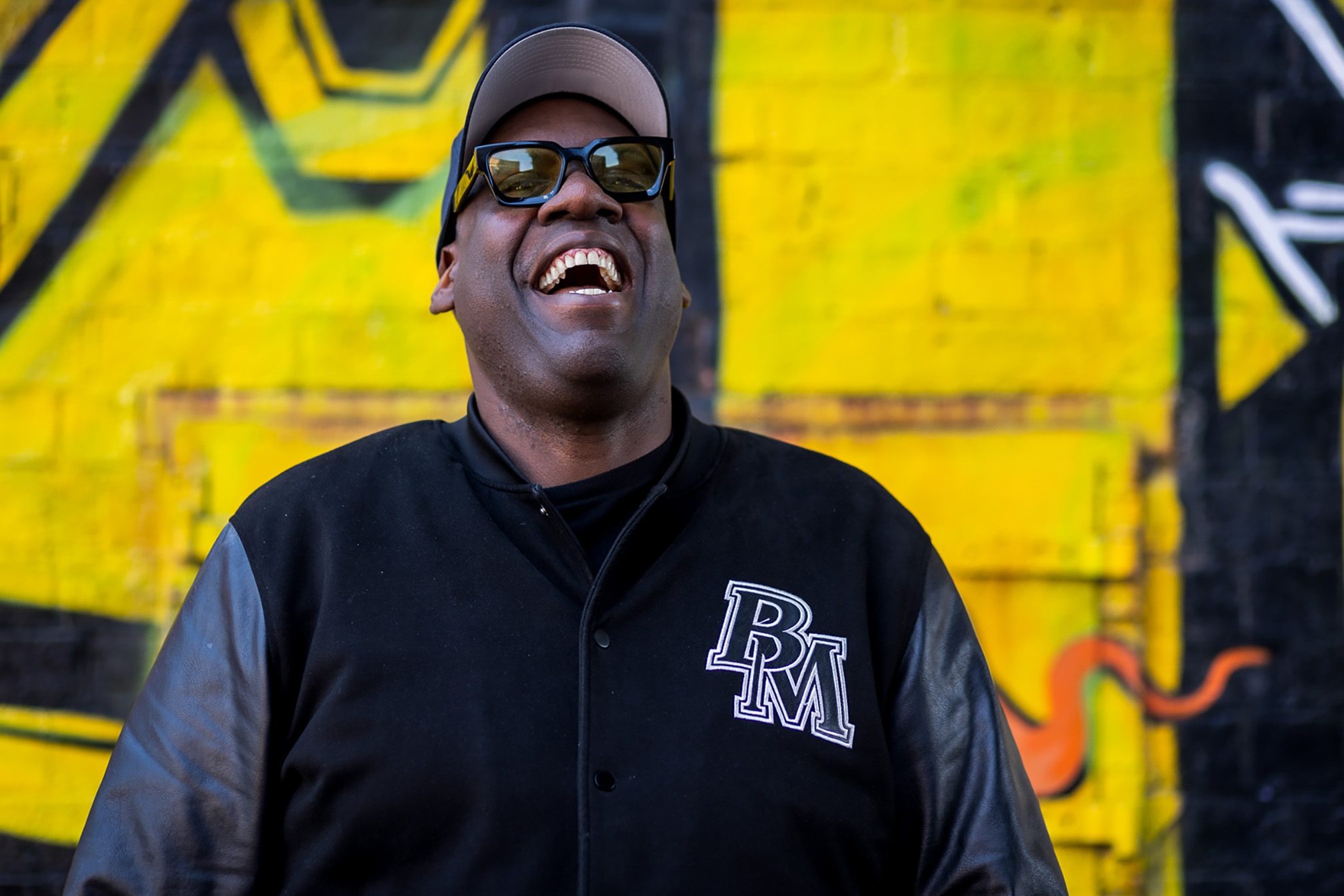
It’s hard to imagine, but even Sylvester would succumb to creative burnout. “When that time came, I’d go somewhere else to chill out and come back. I sometimes go to the club to hear something and get re-inspired again, come back on Monday reinvigorated.” He talks about his mind as though it were a bomb that could go off at any moment. “All I need is a little spark, it could be something on the radio or watching TV, I hear a track [in my head] and it sparks me off,” he says, clicking his fingers next to his head.
By the late ’90s, Power was noticing the compatibility of garage and R&B, and employed a strategy of providing bootleg R&B cuts under the table. “At the time, R&B was big, all these big American acts like SWV,” Sylvester remembers. “George used to say to go down the record shops, find these American releases and get the acapellas from them, then bring it back and add your own touch to it.” No R&B record was safe from his hands, and one such alias that achieved notoriety for its bootlegs was Club Asylum, a collaboration between Sylvester and Paul Emmanuel which would grow into a career peak. “A lot of the pirates were loving it, as well as the Kiss FMs and Radio 1s. Every time you turned it on, you were hearing our beats.”
“That’s when the majors got in touch,” he sighs with a weight of importance. “They said, ‘I see what you’re doing. Okay, you’ve took our vocals, but we like what you’re doing’.”
Wiping away the rawness of the original Nice ‘N’ Ripe material with a 2-step sheen, Club Asylum became the producers of choice for bringing garage to sexy R&B cuts — Another Level’s ‘Freak Me’, Ginuwine, ‘What’s So Different’, Adina Howard ‘Freak Like Me’, Dionne Rakeem’s ‘Sweeter Than Wine’ and All Saints’ ‘Bootie Call’ were all given the Asylum treatment. Most famously, their remixes of Shola Ama’s ‘Imagine’ and Kristen Blond’s ‘Love Shy’ chopped up acoustic guitar into serene grooves, and sped-up lyrics to bring out a giddiness in vocal runs. Along with Sunship and Artful Dodger, the duo were responsible for a new form of R&B that was distinctly UK, and you can hear its impact today in the works of Erika de Casier and PinkPantheress (when I asked him about the latter, Sylvester grabs a pen and writes her name down).
But as they reached chart success, the bubble quickly burst. “We were getting asked to do a load of remixes, but just [the same] as the last remix, for someone else,” he explains. “We got tired of that. We’re always looking for something new, but when you’re constantly being asked to make something that’s already out there, we slipped off and started doing our own thing. We just went our separate ways, it was a mutual thing.”

As mainstream saturation and the summers of Ayia Napa cast a long shadow over UK garage it was ridiculed into obscurity by the media, but Sylvester was already onto the next sound, mainly progressive house and electro with a dash of post-Todd Edwards 4x4 garage. “I didn’t really follow fashion like that, I just kept making my music no matter what it was,” he puts it soberly. But his legend as a garage producer was just beginning to crystallise. The Northern bassline scene of the 2000s found national success with an excitedly acidic style influenced by Sylvester classics like ‘Watch Ya Bass Bins’. Manchester trio Platnum gave new life to ‘Love Shy’ and boosted the tune to further success than the Club Asylum mix. “It was a cool track, man! It was good to see,” he smiles, his mind casting him back. “I didn’t dive into bassline, but I was doing bassline on the G.O.D. stuff. Even before that with Deep Cover, my early house-y stuff was quite bassline-orientated.”
Read this next: The Mix 016: Big Ang
As YouTube archiving became rife, plenty of tracks that received little love at the time were being rediscovered by a new generation. Disclosure have been open about their appreciation for Sylvester, and the funhouse bass swirls on his track as ‘Got 2 Work’ as Champagne Bubbler can be heard across the duo’s third album ‘ENERGY’. “It’s amazing what ones people pick up on, tracks that were a B-side track 2, not even the main track,” he beams. “There’s one G.O.D. track called ‘Shake It Up’. People go insane about it, which surprises me because at the time it wasn’t that big of a track. I find it all fascinating.”
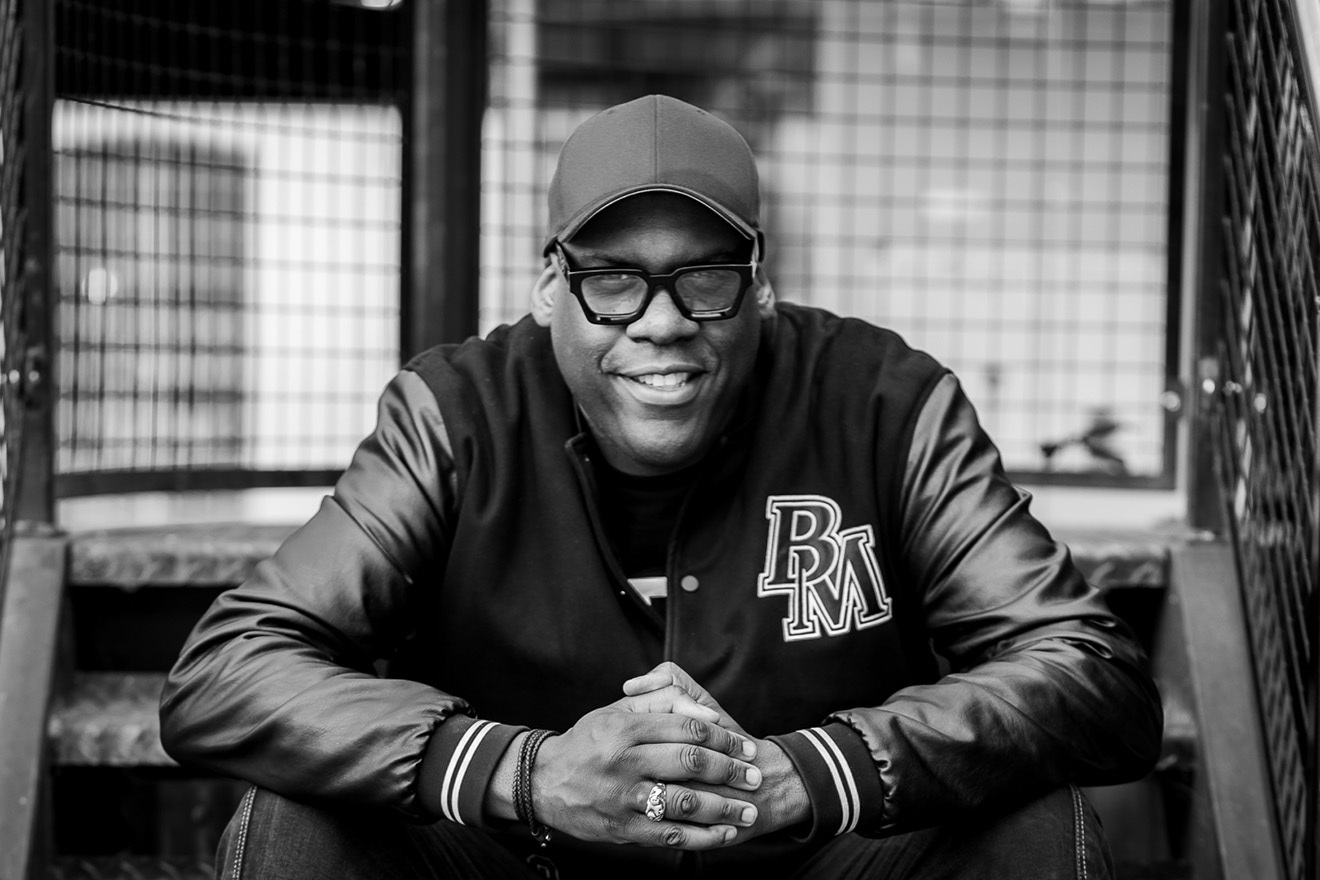
With this in mind, it’s long overdue for Sylvester to step back into garage in a big way. His debut studio album ‘Underground Hero’ on his newly minted label Garage Paradise is as big a re-entry as they come. At 18 tracks, he’s afforded himself room to touch on his legacy while giving history to where he came from. The rawness of his Nice ‘N’ Ripe era has been replaced with the rawness of modern advancements in low-end firepower, and he splits the album into four “rooms” - one for chest-rumbling speed garage, one for vocal garage à la Club Asylum, a third for pearlescent deep house and one for blusterous breaks that see his jungle influences return.
“For a long time, I never saw myself as an artist. I always saw myself as a producer,” he admits. “Recording under different aliases and working with various labels, the focus was always on the music rather than the people behind them. But once I started DJing, my perspective shifted. I began to embrace the idea of being an artist, honing in on my own style and signature sound. With the rise of social media, the visual element became important too, and as I got older and I’m seeing that I'm inspiring a whole new generation, I started thinking of myself as a full package - a unique identity - stepping out from behind the scenes and into the spotlight.”
An idea that lay dormant for four years, ‘Underground Hero’ brought a new challenge to Sylvester, one that saddled him with a months-long creative block for the first time in his career. “I stopped halfway through, thinking ‘how am I gonna do this?’” he says slowly, making a curving snake with his hands. “What direction do I want to go?” In the end, the solution was to put the blinders back on and be the production thoroughbred George Power saw in him. “I thought ‘just do you’. As soon as I said that, I felt more content.”
“It’s funny because it’s the tunes that I spent the least amount of time on, people gravitate towards more than the ones I’m spending the most amount of time on,” he reflects. “It’s the off-the-cuff, in-the-moment ones that I forget about that people pick up on either at the time or years down the line. You just don’t know what people are gonna like. I can see it from other people’s perspective, they might say ‘you’ve got too much stuff out there’, but if not for that, I wouldn’t be doing what I’m doing, and my sound wouldn’t be where it is now.”
Jeremy Sylvester's 'Underground Hero' album is out now via Garage Paradise, get it here
Nathan Evans is a freelance music journalist, follow him on Twitter


